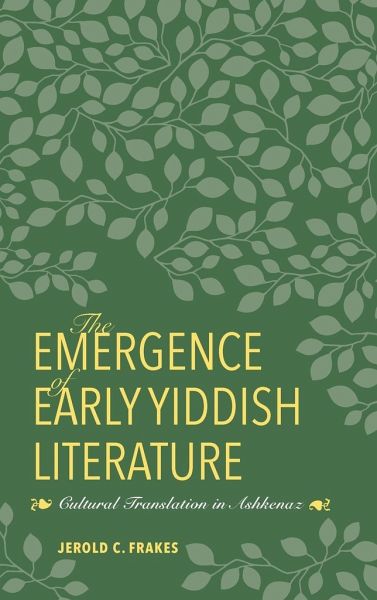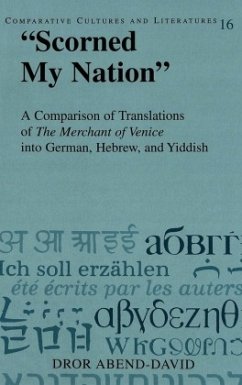Nicht lieferbar

Emergence of Early Yiddish Literature
Cultural Translation in Ashkenaz
Versandkostenfrei!
Nicht lieferbar
While much early Yiddish literature belonged to pious genres, quasi-secular genres--epic, drama, and lyric--also developed. Jerold Frakes contends that the historical context of the emergence of Yiddish literature is an essential factor in any understanding of its cultural relevance in a time and place where Jewish life was defined by expulsions, massacres, and discriminatory legislation that profoundly altered European Judaism and shook the very foundations of traditional Jewish society.













